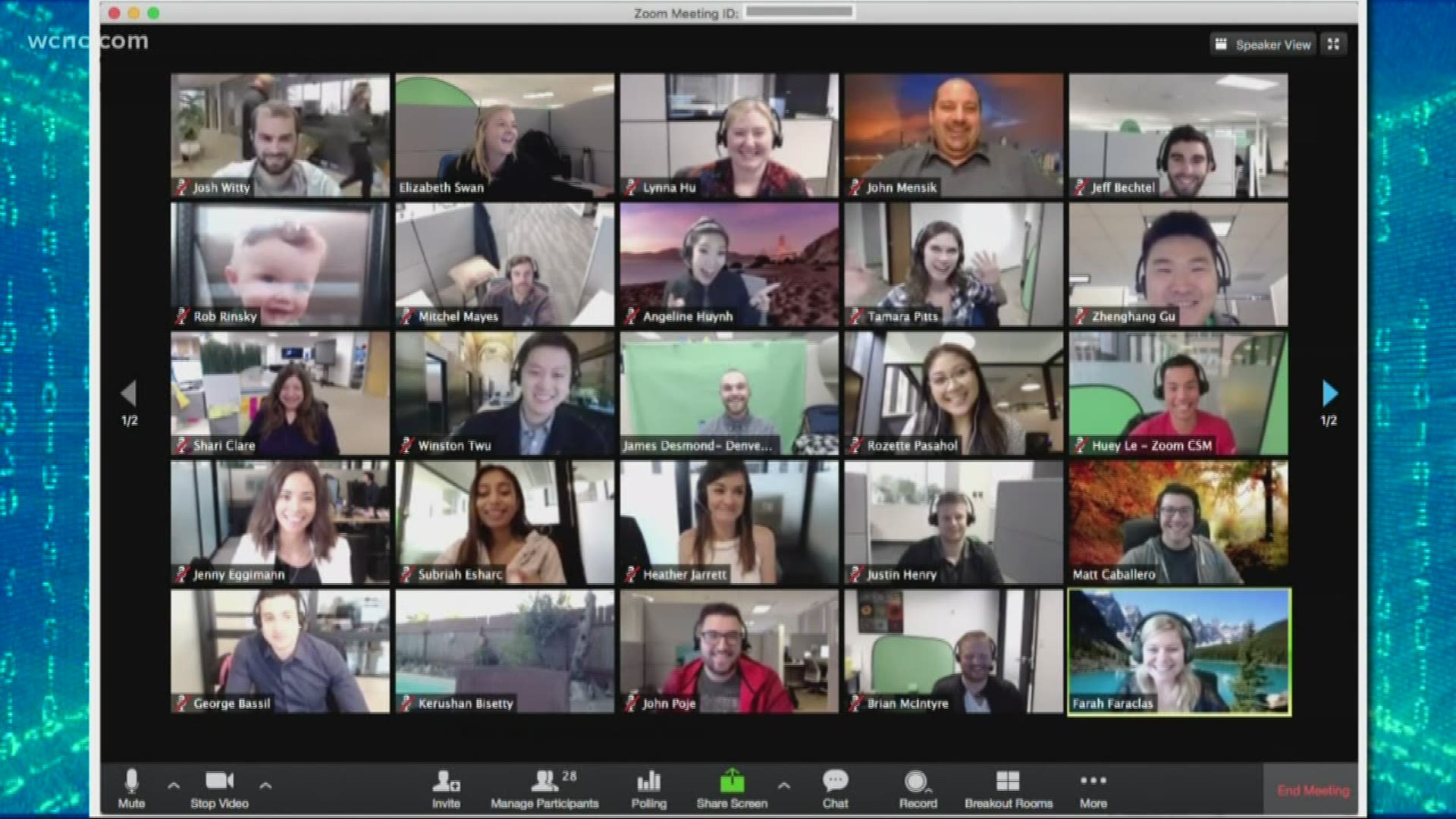CLEVELAND — Many of us have turned to technology to stay in touch with others under the new stay-at-home order. Zoom has become a go-to option, quickly becoming the top app in the Apple App Store and Google Play Store.
The popularity of Zoom has made it a target of sorts among hackers and internet trolls. Their latest nuisance is called Zoom-bombing.
Zoom-bombing is when an unwanted visitor gains access to a Zoom meeting and disrupts it by clogging the chat window, sharing unwanted content and even spreading hate messages.
“There are people who are bombing peoples’ webinars and open zoom calls with racist, and homophobic, and antisemitic attacks,” said Dan Moulthrop, CEO of The City Club of Cleveland. His organization was attacked last week by a ‘Zoom-bomber’ during an online forum designed to education the public about the CARES act that was recently passed by Congress.
“The minute we were about to start, somebody started sharing their screen,” recalled Moulthrop. “And [they] immediately went over to their browser and went to a porn site and started sharing sexually explicit material.”
The City Club is not alone. Just days ago, the FBI issued a warning to users about what internet attackers were doing and how to prevent it from happening. Changing certain settings before starting a Zoom session is imperative. The following tips were given:
- Do not make meetings or classrooms public. In Zoom, there are two options to make a meeting private: require a meeting password or use the waiting room feature and control the admittance of guests.
- Do not share a link to a teleconference or classroom on an unrestricted publicly available social media post. Provide the link directly to specific people.
- Manage screensharing options. In Zoom, change screensharing to “Host Only.”
- Ensure users are using the updated version of remote access/meeting applications. In January 2020, Zoom updated their software. In their security update, the teleconference software provider added passwords by default for meetings and disabled the ability to randomly scan for meetings to join.
- Lastly, ensure that your organization’s telework policy or guide addresses requirements for physical and information security.
You can also setup co-hosts to help you manage large zoom sessions, which can be an overwhelming task to handle alone.
Hackers are hard at work because they know more of us are using the internet. Even organizations that typically don’t worry about hackers must pay attention.
“Our default mode as an organization is to lower barriers for entry to make it as successful as possible,” said Moulthrop. But under these circumstances, everyone must remain vigilant.
“I mean they’re bored. They’re trying to have what they perceive to be a good time disrupting other people – which is a shame.”
The City Club isn’t giving up Zoom just yet, especially since it has the new security knowledge to work with. As long as you prepare yourself, you can safely use Zoom and other video sharing apps too.
Moulthrop’s advice: “Take the time to learn how the platform works. And take the time to test it out before you’re ready for prime time.”

